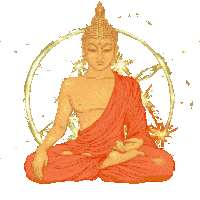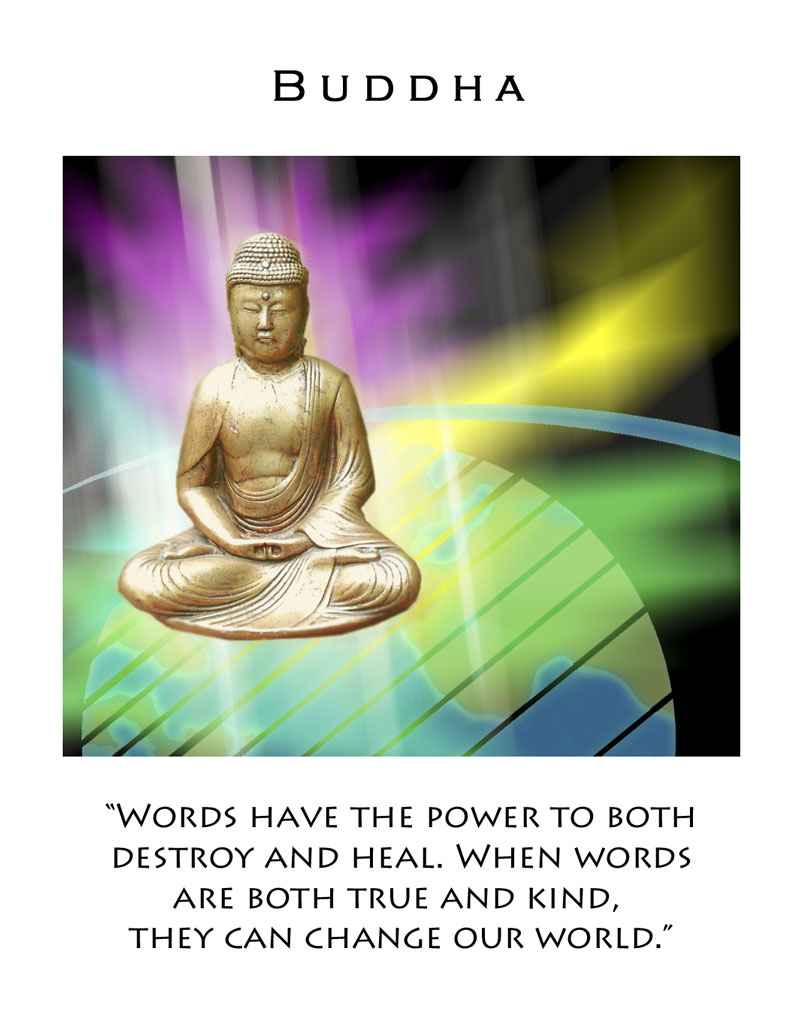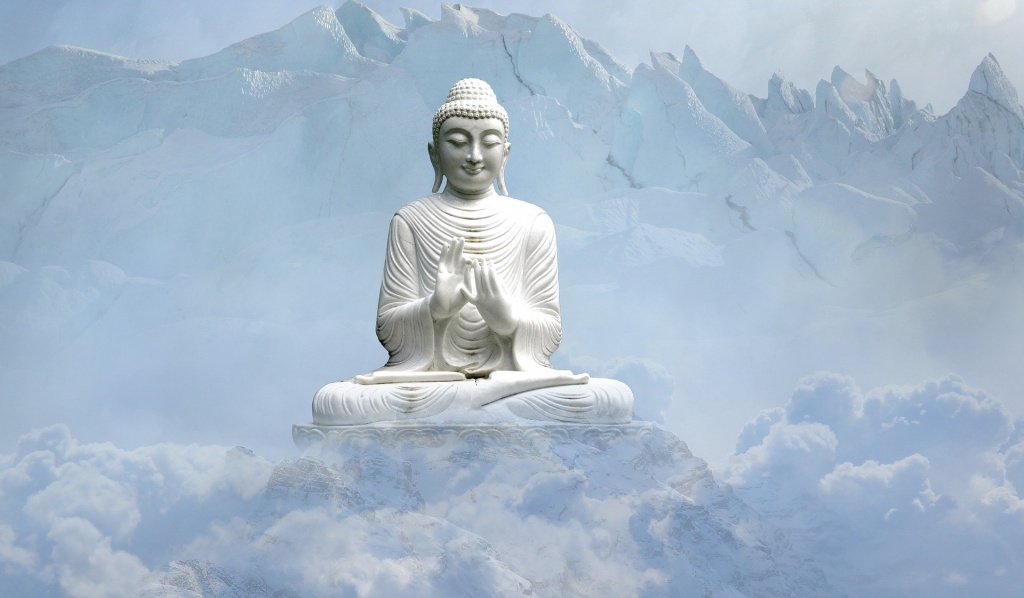Buddha’s First Teaching at Deer Park
These two extremes, monks, are not to be practiced
by one who has gone forth from the world.
What are the two?
That joined with the passions and luxury—
low, vulgar, common, ignoble, and useless,
and that joined with self-torture—
painful, ignoble, and useless.
Avoiding these two extremes the one who has thus come
has gained the enlightenment of the middle path,
which produces insight and knowledge,
and leads to peace, wisdom, enlightenment, and nirvana.
And what, monks, is the middle path, by which
the one who has thus come has gained enlightenment,
which produces knowledge and insight,
and leads to peace, wisdom, enlightenment, and nirvana?
This is the noble eightfold way, namely,
right understanding, right intention,
right speech, right action, right livelihood,
right attention, right concentration,
and right meditation.
This, monks, is the middle path, by which
the one who has thus come has gained enlightenment,
which produces insight and knowledge,
and leads to peace, wisdom, enlightenment, and nirvana.
Now this, monks, is the noble truth of pain:
birth is painful; old age is painful;
sickness is painful; death is painful;
sorrow, lamentation, dejection, and despair are painful.
Contact with unpleasant things is painful;
not getting what one wishes is painful.
In short the five groups of grasping are painful.
Now this, monks, is the noble truth of the cause of pain:
the craving, which leads to rebirth,
combined with pleasure and lust,
finding pleasure here and there,
namely the craving for passion,
the craving for existence,
and the craving for non-existence.
Now this, monks, is the noble truth
of the cessation of pain:
the cessation without a remainder of craving,
the abandonment, forsaking, release, and non-attachment.
Now this, monks, is the noble truth
of the way that leads to the cessation of pain:
this is the noble eightfold way, namely,
correct understanding, correct intention,
correct speech, correct action, correct livelihood,
correct attention, correct concentration,
and correct meditation.
“This is the noble truth of pain”:
Thus, monks, among doctrines unheard before,
in me insight, wisdom, knowledge, and light arose.
“This noble truth of pain must be comprehended.”
Thus, monks, among doctrines unheard before,
in me insight, wisdom, knowledge, and light arose.
“It has been comprehended.”
Thus, monks, among doctrines unheard before,
in me insight, wisdom, knowledge, and light arose.
“This is the noble truth of the cause of pain”:
Thus, monks, among doctrines unheard before,
in me insight, wisdom, knowledge, and light arose.
“The cause of pain must be abandoned.”
Thus, monks, among doctrines unheard before,
in me insight, wisdom, knowledge, and light arose.
“It has been abandoned.”
Thus, monks, among doctrines unheard before,
in me insight, wisdom, knowledge, and light arose.
“This is the noble truth of the cessation of pain”:
Thus, monks, among doctrines unheard before,
in me insight, wisdom, knowledge, and light arose.
“The cessation of pain must be realized.”
Thus, monks, among doctrines unheard before,
in me insight, wisdom, knowledge, and light arose.
“It has been realized.”
Thus, monks, among doctrines unheard before,
in me insight, wisdom, knowledge, and light arose.
“This is the noble truth
of the way that leads to the cessation of pain”:
Thus, monks, among doctrines unheard before,
in me insight, wisdom, knowledge, and light arose.
“The way must be practiced.”
Thus, monks, among doctrines unheard before,
in me insight, wisdom, knowledge, and light arose.
“It has been practiced.”
Thus, monks, among doctrines unheard before,
in me insight, wisdom, knowledge, and light arose.
As long as in these four noble truths
my due knowledge and insight
with the three sections and twelve divisions
was not well purified, even so long, monks,
in the world with its gods, Mara, Brahma,
its beings with ascetics, priests, gods, and men,
I had not attained the highest complete enlightenment.
This I recognized.
And when, monks, in these four noble truths
my due knowledge and insight
with its three sections and twelve divisions
was well purified, then monks,
in the world with its gods, Mara, Brahma,
its beings with ascetics, priests, gods, and men,
I had attained the highest complete enlightenment.
This I recognized.
Knowledge arose in me;
insight arose that the release of my mind is unshakable:
this is my last existence;
now there is no rebirth.

















Comments
On Mon, 28/09/2015 - 20:45,
MJ (not verified)
commented:
Dahl
your own dahl is quick, easy and cheap! Sautee garlic and cumin seeds
in a little bit of water. Add rinsed red lentils and water and some
broth powder or cube (vegan, of course). Add in diced tomatoes and some
kale or other green leafy veg. Add salt if needed. Once the lentils are
soft, about 20 minutes, you are good to eat. Enjoy with brown or white
rice, or pita. One of my go-to meals that I serve to company.